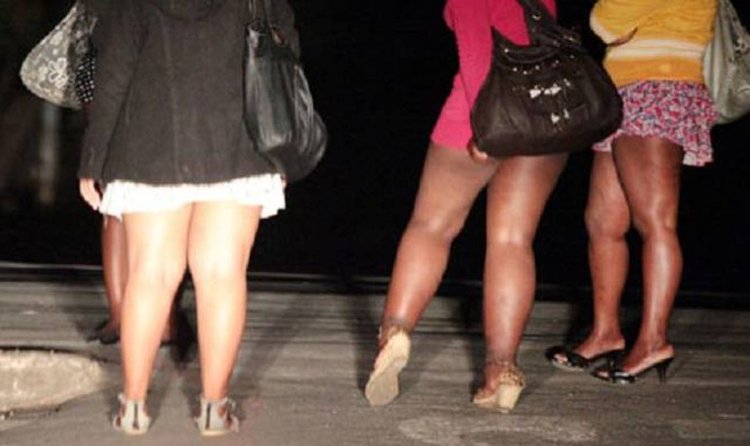Inside Proposed Bill By CJ Koome To Make Sex Work Legal
Currently, sex work, also known as prostitution, is an offence in Kenya punishable by up to three years in prison as highlighted in Sections 153, 154 and 155 of the Constitution.

Kenyans who engage in sex work, both men and women, may no longer be subjected to fines nor jail terms should a new bill proposed by the Judiciary be assented to law.
The Bill, Penal Code (Amendment) Bill, 2023, presented by Chief Justice Martha Koome to Parliament is aimed at making amendments regarding the classification of capital and criminal offences in the country.
Currently, sex work, also known as prostitution, is an offence in Kenya punishable by up to three years in prison as highlighted in Sections 153, 154 and 155 of the Constitution.

A photo of sex workers in Kenya. /X
However, the Judiciary is proposing to delete the three sections in the Penal Code meaning the offences, should the bill be assented to Law by President William Ruto, would cease to exist.
Section 153 currently defines male prostitution as a male person who lives on the earnings of prostitution or is proven to live with a prostitute or has aided in the act of prostitution and is guilty of a felony.
"The principal Act is amended by deleting section 153 which states: Every male person who knowingly lives wholly or in part on the earnings of prostitution; or in any public place persistently solicits or importunes for immoral purposes, is guilty of a felony," reads part of the Penal Code.
"Where a male person is proved to live with or to be habitually in the company of a prostitute or is proved to have exercised control, direction or influence over the movements of a prostitute in such a manner as to show that he is aiding, abetting or compelling her prostitution with any other person, or generally, he shall unless he satisfies the court to the contrary be deemed to be knowingly living on the earnings of prostitution."
Section 154 of the Penal Code sees the same offence applied to women.
"Every woman who knowingly lives wholly or in part on the earnings of prostitution, or who is proved to have, for the purpose of gain, exercised control, direction or influence over the movements of a prostitute in such a manner as to show that she is aiding, abetting or compelling her prostitution with any person, or generally, is guilty of a felony," reads part of the Penal Code.
Furthermore, Section 155 provides that in any house that is used for the purpose of prostitution and the inhabitants live on the earnings of the act, a magistrate is required to issue a warrant authorising any police officer to enter and search the house and arrest such persons.
In Kenya, a country where 34 to 42% of the population lives below their means, according to the World Bank, prostitution has become a rampant survival strategy, despite being frowned upon.
Across the country, more than 200,000 workers operate in the sex business. Nairobi alone has more than 40,000 sex workers.
However, the lack of regulation in the sector leads to systematic violations of women's rights.
Other issues include social stigma, violence by customers or police, unjustified arrests and a situation that can lead to serious physical and mental consequences.


 admin
admin 




